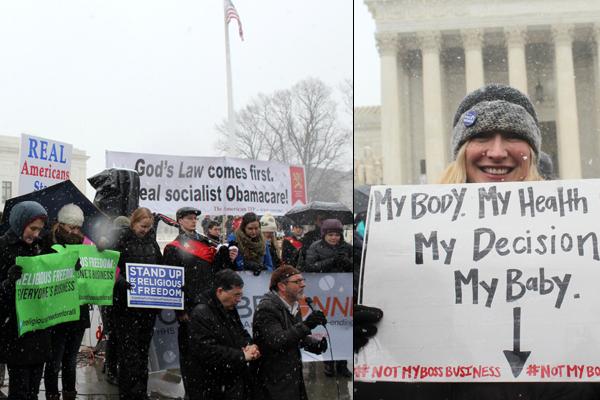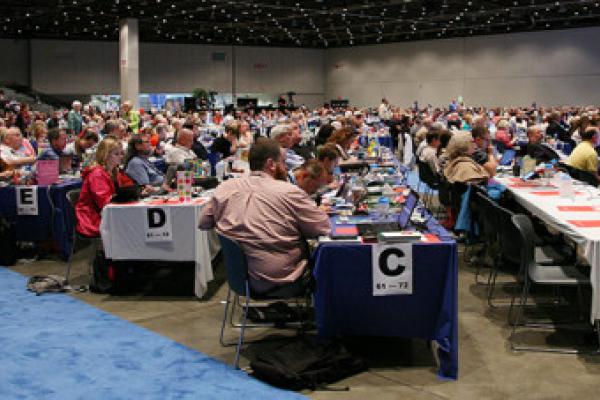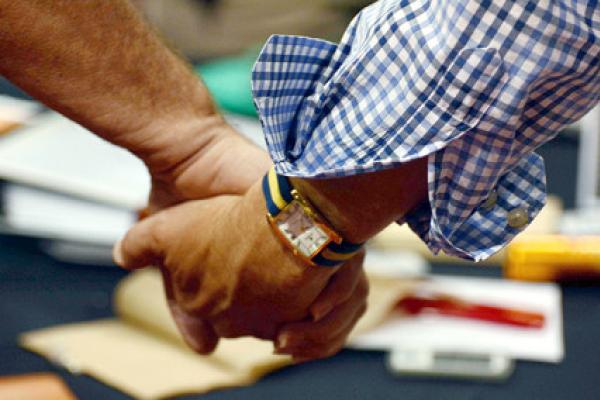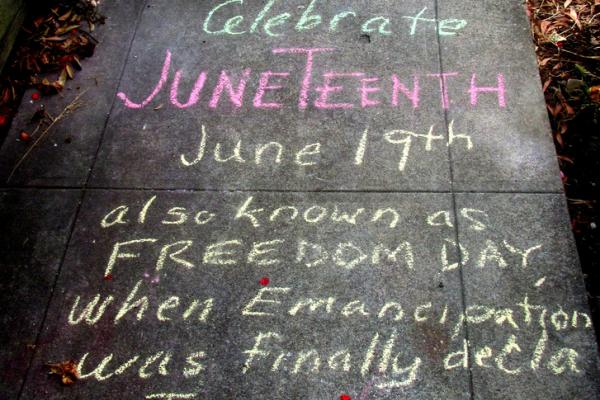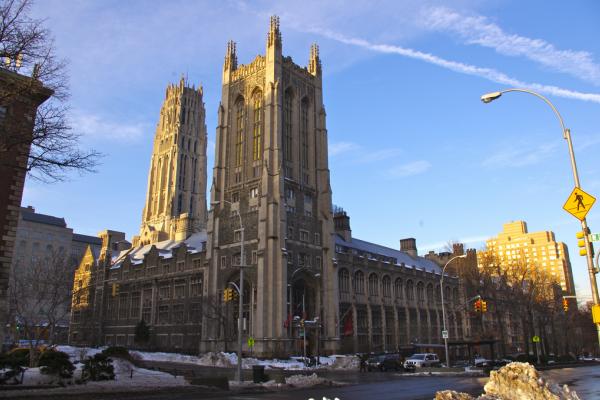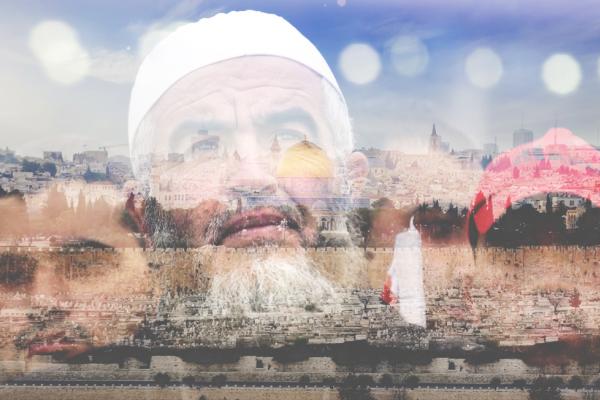Saturday marked the 50th anniversary of the senseless slaughter and lynching of civil rights workers James Chaney, Andrew Goodman, and Michael Schwerner during Freedom Summer in Mississippi. They gave their lives to insure that every person in Mississippi would have the right to vote and be a full citizen of this nation. This interracial trio believed with all their hearts that it was worth it to put their bodies on the line for racial justice and dignity, and they paid the ultimate price.
We have come a long way in the last 50 years, but the recent deaths of Trayvon Martin and Jordan Davis in Florida remind us that much work remains, and that white supremacy may have taken different forms, but it is alive and well. And today, white supremacy operates most powerfully at the subconscious level. And it has to do with an innate feeling of superiority.
Another Christian school moves to divest – this time, a Catholic university
Just one week after Serene Jones, President of Union Theological Seminary, announced their decision to become the world’s first seminary to divest from fossil fuels, another first announced. The University of Dayton, a Catholic, Marianist university, will divest fossil fuels from its $670 million investment pool. This is the first Catholic university in the world to do so.
Just as divestment makes sense for Union Theological Seminary and its history of engaging social justice, this choice is in line with Catholic social teachings and the Marianist values of leadership and service to humanity. Marianists view Mary, the mother of Jesus, as their model of discipleship, and their mission is to bring Christ into the world and work for the coming of Christ’s kingdom.
Union and the University of Dayton are the newest schools joining the growing list of U.S. colleges and universities divesting from fossil fuels as a way to stop financially supporting the climate pollution and the public health implications of coal, oil, and natural gas as the dominant sources of energy in the country. Their announcements are unique because they speak not only of the moral choice, but of the Christian choice on matters of financial investment.
At the Presbyterian Church (USA) General Assembly this past week, in addition to the denomination’s decision to divest from three companies in relation to conflict in Israel/Palestine, a decision was made to begin the discernment process on fossil fuel divestment. The fossil fuel divestment conversation is happening in many churches and religious institutions across the country, and Union Theological Seminary and the University of Dayton are clear that they see this as an act of Christian witness for protecting God’s creation and people.
Information is from The University of Dayton’s website.
It’s easy for the faith of children to go unnoticed. But here are four spiritual things kids do better than adults:
They Ask Questions:
Nobody asks more — or better — questions than children. “Who?” “What?” “Where?” “When?” and “Why?” are expressions patented by kids everywhere. They’re obnoxiously curious and want to know everything about everything.
They aren’t afraid to ask the most difficult and messy questions. Too often we mistake spiritual maturity for certainty, and lose our thirst for discovery. Kids remind us how to approach God — truthfully, stubbornly, inquisitively, and tirelessly.
The U.S. Supreme Court is expected to finally issue its ruling this week in the highly anticipated case of the craft companies vs. Obamacare.
Technically, it’s Sebelius v. Hobby Lobby and Conestoga Wood Specialties, a showdown over the Affordable Care Act’s contraception coverage mandate. The core legal question is whether a private company can have religious rights.
But to the general public, this is seen as a showdown between employers — the evangelical Green family behind Hobby Lobby and the Mennonite Hahn familythat owns the Conestoga cabinet company — and the employees’ personal reproductive choices under their insurance.
While conservatives have cast the battle as one for religious freedom, the general public may see it as a showdown over personal health choices.
The Presbyterian Church (USA) voted Friday to divest church funds from three American companies it cited for profiting from the oppression of Palestinians within Israel’s occupied territories.
The 310-303 vote of the church’s General Assembly in Detroit marks a victory for divestment supporters both within and without the 1.8 million-member PCUSA, now the largest American church to embrace divestment as a strategy to pressure Israel to return its illegally held lands.
The issue has roiled the church for the last decade, and during a more than three-hour debate, many lamented the divisiveness and noted how many around the world — in the U.S., Israel, and the Palestinian territories – would be watching.
The quaint Pillar Church sits directly across the street from Hope College in Holland, Mich. — the first congregation established by a wave of Dutch immigrants to the area. When I enrolled at Hope in 1963, all I knew was that virtually no students went to Pillar Church.
A half century later, the story of Pillar Church tells a much larger narrative of the long and arduous journey toward authentic Christian unity.
Pillar Church and Hope College were both founded as part of the Reformed Church in America, a denomination formed by Dutch settlers to New Amsterdam (we now call it New York City) in 1628. A later wave of Dutch immigrants settled in the Midwest, particularly western Michigan. Some of them broke away and established the Christian Reformed Church in North America in 1857.
From its founding, Pillar Church had been a member of the RCA. But in 1882, a group siding with the emerging CRC seized the church building, locked its doors with chains, and, grasping axe handles, defended it against their fellow congregants. From then on, Pillar Church was a CRC congregation, and it became essentially foreign territory to those of us at the RCA-affiliated school across the street.
One would think that sharply defined theological differences among Reformed Protestants — who are famous for their theological exactitude — would have been the cause of such a dramatic intra-ethnic split. But no.
Sometimes it is hard to know even where to begin. We stare at this System, this complex web of human behaviors, and the institutions erected to memorialize them, and we simply do not know where to begin. How do we fix it?
"That's just the way it is," we say. "Some things will never change."
Systems are strange beasts. They take incredible human investment to maintain. They are the spaces by which many of us come to know ourselves, to know our place in this world. We identify ourselves in relationship to them. And yet they are so close to us as to be rendered invisible.
Until they hurt us. Until they step on us, exclude us, enslave us, brutalize us.
And this is when it gets interesting, of course; this is when they do their real work, these systems.
If you made a short list of the issues the American church doesn’t talk about from the pulpit, you’d probably find sexual and domestic violence topping out the list.
According to a recent LifeWay Research poll of 1,000 Protestant pastors, 74 percent misjudge how prevalent sexual and domestic violence was within their congregations. Two out of three pastors reported delivering a sermon once a year (or less) on the issue. And although 72 percent of pastors speak out on the issue because they believe sexual and domestic violence is a problem in their local communities, only 25 percent do so because they perceive it to be a problem in their congregations. The poll was conducted on behalf of Sojourners and IMA World Health and the full report can be found here.

Last week, Serene Jones, president of Union Theological Seminary, announced that the school is divesting its endowment of fossil fuels. It is the first seminary in the world to do so, marking Union’s latest action in a long legacy of social justice commitments.
So what? Well, it helps to look at this news in context.
Through my work with The Global Immersion Project, I have spent a significant amount of time over the years cultivating relationships among both Israelis and Palestinians as we partner together in cultivating a narrative of reconciliation. As is often the case when we approach a people or place with the hopes of being/bringing the needed change, I have been the one most changed by my friends and colleagues who reside in the Middle East. Behind so many of the subconscious stereotypes and prejudices I had acquired earlier in my life I began to experience the richness of friendship and brotherhood among people I had previously “known” only through the latest sound bite.
Something I have learned in the classroom of real life relationships with Jews, Christians, and Muslims in the Holy Land is that our theology in the West has direct implications for the everyday lives of those in the Middle East. Often ignoring the remarkable movements of peacemaking, reconciliation, and collaboration that are sprouting like mustard seeds of hope across the Holy Land, we often choose only to amplify of the violence, discord, and disintegration of the region.
![By Federal Bureau of Investigation Workers (Federal Bureau of Investigation) [Public domain], via Wikimedia Commons](https://sojo.net/files/styles/large_rectangle_crop/public/blog/Mississippi_KKK_Conspiracy_Murders_June_21_1964_Victims_Chaney_Goodman_Schwerner.jpg)

